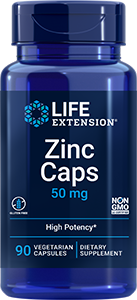
Newsletter
Newsletter
Increasing Your Omega-3 Intake Could Lower Your Risk for Stroke and Dementia

Brain health is essential for quality of life, at any age. Recently, articles published in the American Heart Association journal Stroke and in the journal Nutrients reported associations between higher blood levels of omega-3 polyunsaturated fatty acids (PUFAs) and significantly lower risks of stroke and dementia.1,2
Commenting on their dementia results in Nutrients, authors Aleix Sala-Vila of the Fatty Acid Research Institute and colleagues concluded, “This research provides evidence for the benefits of omega-3 fatty acids in brain health and contributes to better defining populations who might obtain the greatest cognitive benefits in omega-3-based interventions.”
In Stroke, 29 studies that included a total of 183,291 men and women were analyzed. Blood polyunsaturated fatty acid levels were measured at the beginning of the studies and cerebrovascular disease events were ascertained during a median follow-up of 14.3 years.
Researchers analyzed the associations between the intake of omega-3 fatty acids (EPA, DHA and DPA) and total strokes, ischemic strokes and hemorrhagic strokes. They found that subjects in the top 20% of EPA or EPA plus DHA levels, compared with the lowest, had a 17% lower risk of all types of stroke and an 18% lower risk of ischemic stroke.
The study published in Nutrients examined the association between plasma omega-3 fatty acids and the risk of dementia among 267,312 participants in the UK Biobank Study who were aged 40 to 69 years upon enrollment from 2006 to 2010. Participants with a total of omega-3 fatty acid levels in the top 20%, compared to those in the lowest, had a 13% lower risk of developing Alzheimer’s disease and a 21% lower risk for all-cause dementia.
Products
Apply What You’ve Learned: Omega-3 and Brain Health
- Higher intake of omega-3 polyunsaturated fatty acids, particularly EPA and DHA, has been linked with brain benefits in numerous studies.3
- Of the omega-3 fatty acids, DHA appears particularly important for brain health. In studies involving rodent models of Alzheimer’s disease, DHA decreased amyloid plaque, one of the hallmarks of the disease.4,5 Among other brain benefits, DHA supports the formation of neurons and synapses.6,7
- Encouraging a healthy inflammatory response is another way that omega-3 fatty acids support brain health. Additionally, pro-resolving mediators made in the body from omega-3 fatty acids help support a healthy post-inflammatory response by promoting pathways that clear cellular debris and more.8
- Omega-3 fatty acids’ ability to limit platelet clumping may help contribute to a healthy cardiovascular system and lower stroke risk. Interestingly, one randomized, controlled trial found that men may experience less platelet aggregation with EPA and women may respond more to DHA.9
- Adding omega-3 fatty acids to the diet is only one of many ways to support cardiovascular and brain health. A healthy diet and physician-approved exercise should be the foundation of any disease-prevention program.
References
- O’Keefe J et al. Stroke. 2024 Jan;55(1):50-58.
- Sala-Villa A et al. Nutrients. 2023 Nov 23;15(23):4896.
- Hsu MC et al. Lipids Health Dis. 2020 Jul 3;19(1):159.
- Xiao M et al. Front Nutr. 2022 Jun 15;9:852433.
- Lim GP et al. J Neurosci. 2005 Mar 23;25(12):3032-40.
- Kim HY et al. Int J Mol Sci. 2022 Apr 22;23(9):4635.
- Gharami K et al. Neurochem Int. 2015 Oct;89:51-62.
- Serhan CN. Mol Aspects Med. 2017 Dec;58:1-11.
- Phang M et al. J Nutr. 2013 Apr;143(4):457-63.
Featured Life Extension Magazine® Article
How Probiotics Can Reduce Anxiety and Depression
By Heather L. Makar
Although antidepressant drugs have been a lifesaver for some people, they don’t work for everyone and are associated with side effects—some significant. Probiotics may provide an alternative when prescription drugs fail.
Medical research has uncovered an association between mood and gut health. A clinical trial found that beneficial bacteria strains known as Lactobacillus helveticus R0052 and Bifidobacterium longum R0175 were associated with improvement in depression scores, anger and hostility scores, stress and psychological distress in comparison with a placebo. Other research has found benefits for the herb saffron against depression, which studies have found to be as effective as some antidepressant drugs.
Read Full Article
What's Hot
Health Concern
Higher midlife omega-3 may mean better brain
The December 6, 2022, issue of Neurology® published findings from a study that suggest a brain benefit for consuming a high amount of omega-3 fatty acids at midlife.

Alzheimer's Disease
Natural interventions such as Huperzine A and lipoic acid may help protect cognitive function and promote brain health.
Related Life Extension Magazine® Articles

Fish Oil and Brain Health
Fish oil helps improve depression scores, reduce stroke damage, and preserve cognition.

Life-Expectancy Impact of Fish Oil
Higher omega-3 levels correlate with greater human longevity. Flavored, chewable, fish oil gummies make it easy to obtain.
Life Extension Magazine® Issue Now Online
A remarkable number of healthy-longevity findings have been published over the past 18 months.




